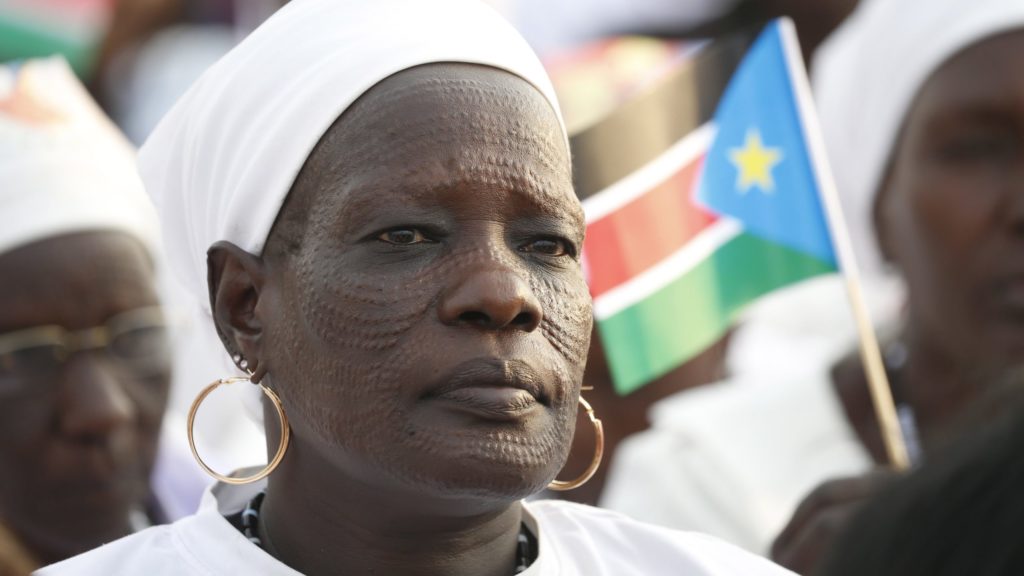While the African continent is shattered by wars, violence and religious intolerance, church leaders gathered at the continental phase of the worldwide synod in Addis Ababa, Ethiopia, March 1-6 pointed to charity, compassion and solidarity as remedies. Pope Francis launched the Synod on Synodality -- a process of listening and dialogue -- in Rome in 2021.
More than 200 participants took part in the continental assembly in the Horn of Africa country, including nine cardinals, 29 bishops and 41 priests from across the continent, Madagascar and the islands. A majority of participants, however, were lay women and men, consecrated people, young people, and representatives of other Christian traditions.
Cardinal Fridolin Ambongo of Kinshasa in Congo had warned that despite remarkable growth of the church in Africa, challenges, including bitter and painful experiences of conflict and war, racial tensions and tribalism, political instability and looting of national wealth were persisting.
"This synodal journey is giving us the courage to evaluate our faith and to speak with freedom, courage and charity about the challenges we face in Africa, both in the church and in society, and to become deeply involved with these challenges in order to respond with concrete transformation," Cardinal Ambongo told the assembly March 2.
The cardinal -- whose country is facing a bloody conflict in its eastern territory -- said the focus of the synod journey was listening. He cautioned that failure to listen triggers conflict, disagreement, division and violence in society and in the church.
"We cannot walk together as family, as a church without listening to each other. This synod is offering us the opportunity to become a listening church and in permanent exercise of mutual listening," said the cardinal.
Rwandan Cardinal Antoine Kambanda of Kigal reiterated Cardinal Ambongo's view, while regretting that despite the growth in the means of communication, people did not listen to each other.
"God, like a father, wants all his children to live in love, peace and brotherhood, but the conflict we have in our world today results from the failure to listen and dialogue," he said during the Continental Synodal Assembly in Africa. "Listening and dialogue leads to mutual understanding and opens the way for reconciliation."
The leaders pointed out that, since the meeting, they have discovered that Africa is a synodal continent and that synodality is part of who they are and how they live.
"But despite all that organization, we are now becoming aware that we don’t know how to make use of all our structures in a synodal way, living synodality as a lifestyle, where all of us (lay people, consecrated men and women, all clergy) are prepared to listen to each other," Bishop Lucio Andrice Muandula of Xai-Xai in Mozambique said in Addis Ababa.
Expressing a commitment to build a synodal church in Africa where all belong and feel at home, church leaders also expressed their desire to stimulate new forms of leadership -- whether priestly, episcopal, religious or lay -- to overcome and root out the weeds of clericalism, authoritarianism and indifference.
"We desire to form the Synodal Family of God in the practice of integral and life-giving leadership that is relational and collaborative, and capable of generating solidarity and co-responsibility," participants of the African synodal assembly in Ethiopia wrote in a final communique March 6.
"To achieve this, the Synodal Family of God in Africa pledges to create spaces and enlarge our tent for the possible exercise of various forms of lay ministry."
The assembly also committed to ending the "rigid hierarchical structures, unhealthy autocratic tendencies, harmful clericalism and isolating individualism" that "undermine and weaken relationships between bishops, priests and laity."
With key youth participation, the assembly noted that the church in Africa was vibrant because of the energy, passion and creativity of the youth.
"Young people have an important place and a pivotal role in the Synodal Family of God in Africa," said the conference.
The synodal group also stressed African women -- who are the majority in the church -- hold it together as its backbone, and journeying together as a Synodal Church means recognizing their gifts, talents, charisms and contributions.
For women in Africa and across the world, "synodality is an opportunity for full and equal participation in the life of the Church. Women are a gift to the Church. There is no way true synodality can happen in the Church if women are not considered as equal partners," noted the conference.

